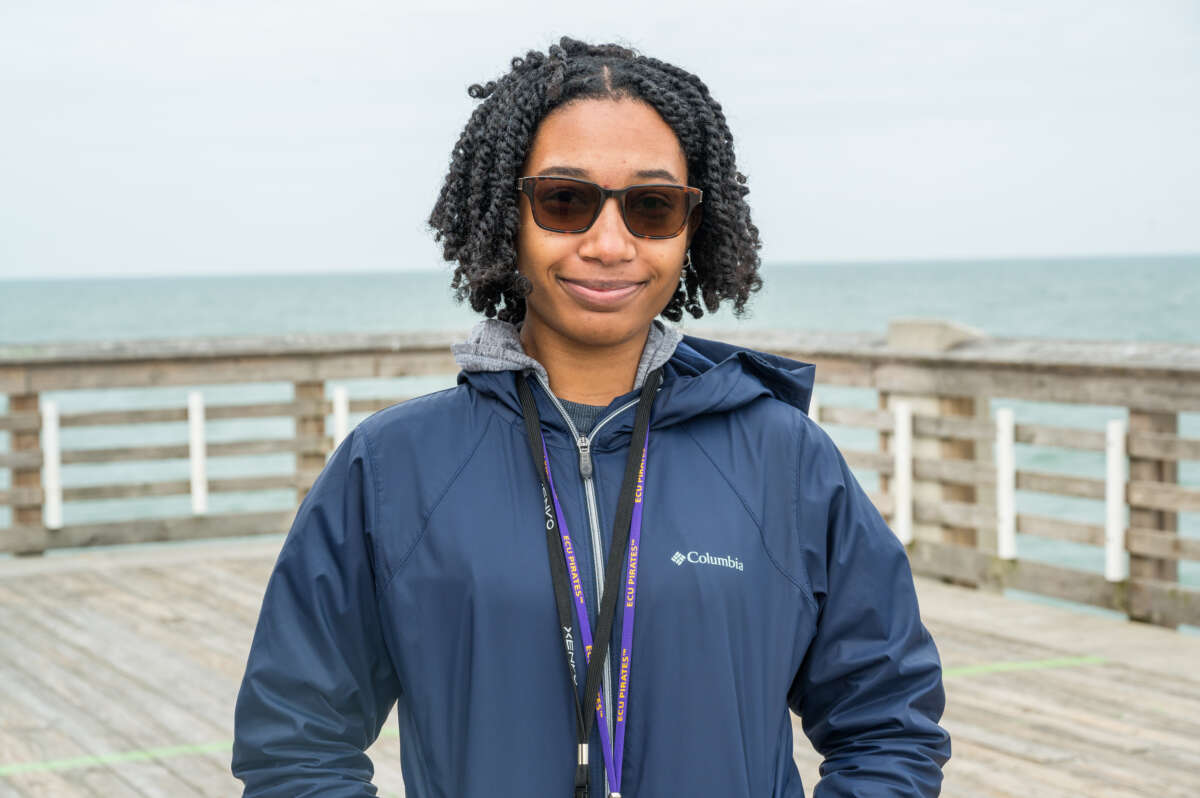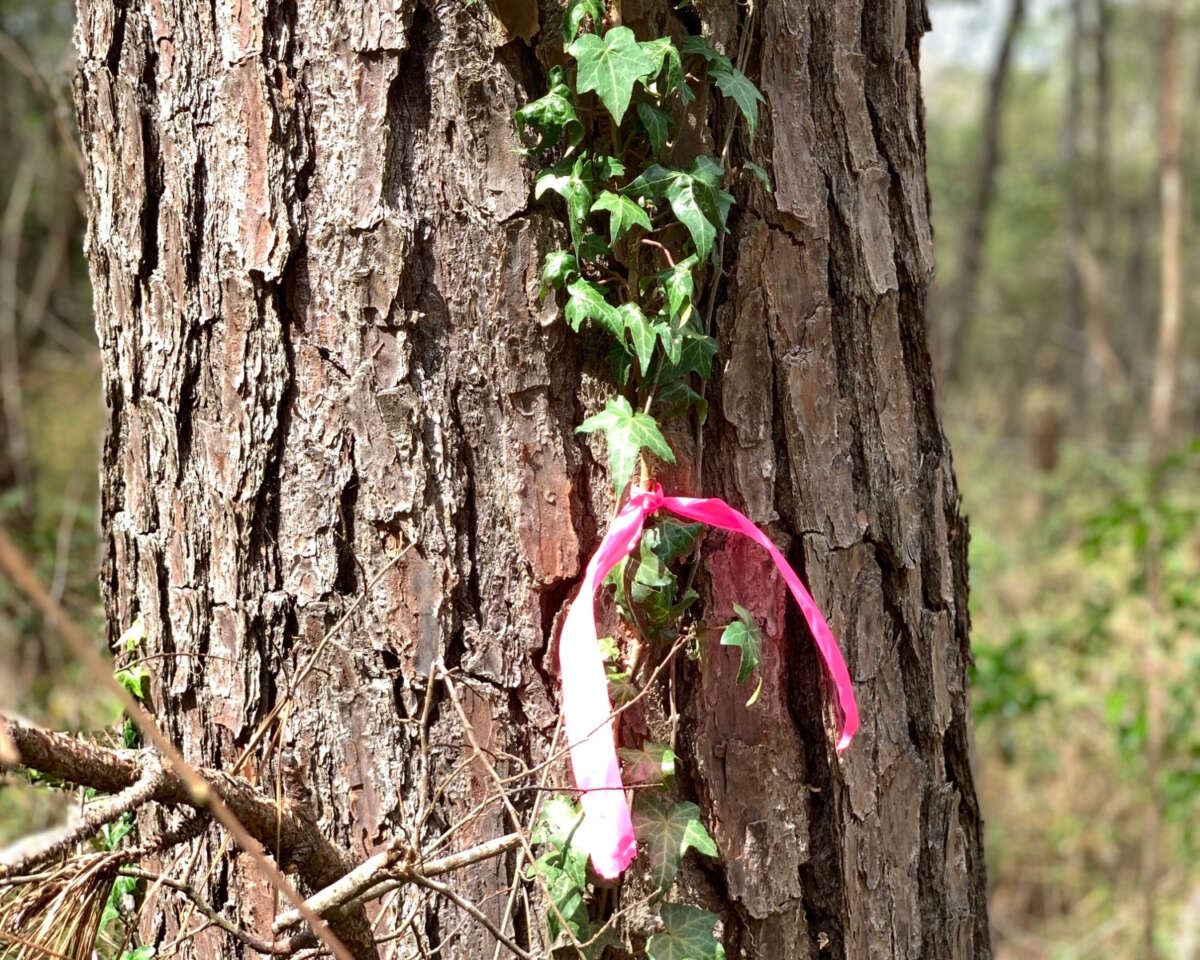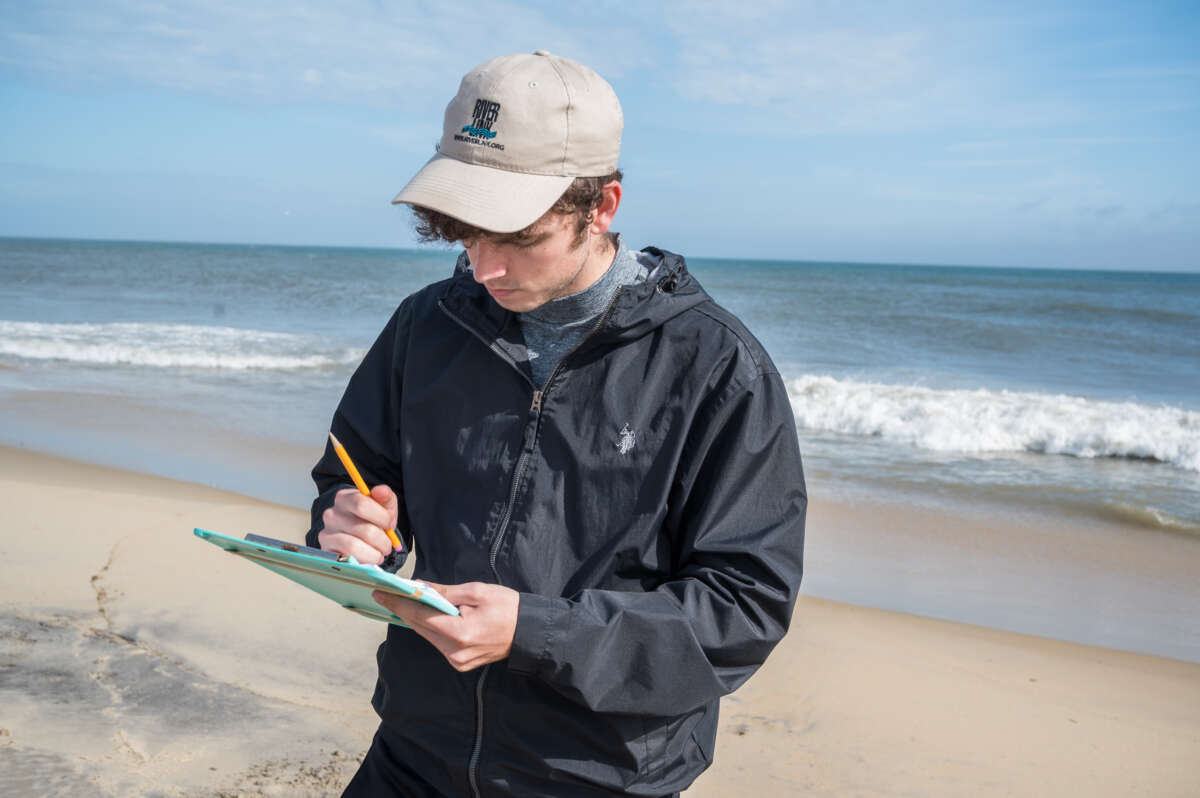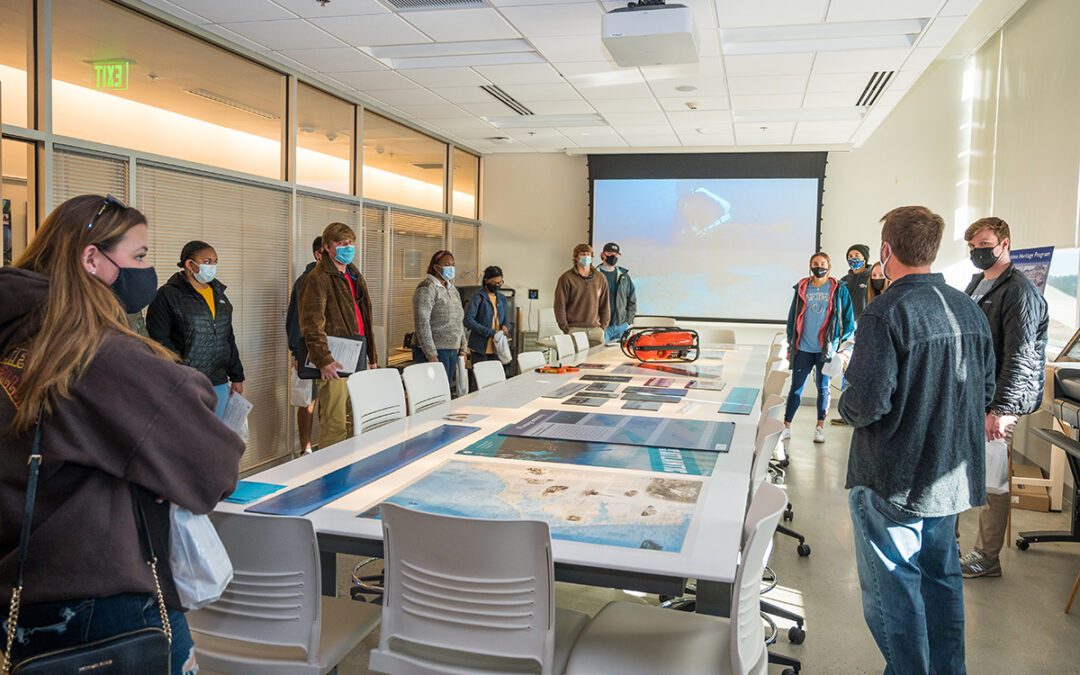In January 2021, sixteen ECU students arrived at the ECU Outer Banks Campus for the second annual Semester Experience at the Coast. In his welcome address to the students, Dean Reide Corbett emphasized the unique opportunity they had to take face-to-face courses on such an incredible campus, full of experiential courses, internships, and faculty ready to engage with them, all in the midst of COVID times. He encouraged them to make the most of the semester, and they did. Several participated in research with faculty while others were engaged with internships.
Before departing, two students shared their stories and have allowed them to be published below in hopes of inspiring others to spend time at ECU’s hidden coastal gem.
•••••
An Experience for Growth and Maturity
by Chanel Sturdivant

Chanel Sturdivant is an ECU rising senior who spent her Junior Spring semester at the ECU Outer Banks Campus on Roanoke Island, NC.
As my spring semester in the OBX and first year at East Carolina University end, I have a lot to share about my experience. I am a junior-year transfer student from a community college earning a degree in biology with a concentration in Ecology. My transfer to ECU presented both opportunity and struggle. Research and internships are an important part of my degree path; yet the prospect of having to get as much practical experience while still doing well in classes all in a two and a half year time span intimidated me. Truthfully, it still does even now, but I knew that I had to start somewhere.
I heard about the Semester Experience at the Coast while touring ECU. Though I was interested, I didn’t think it was something I’d be able to do because I have ADHD and was scared to make mistakes. Despite my fears, as I settled into the end of my fall semester, my advisor mentioned the program again and told me what I could expect. After some contemplation and reassurance, I added the coastal studies minor (COAS) and was set for Manteo and the Outer Banks Campus in the spring. During the process, Dr. Reide Corbett, Dean of Integrated Coastal Programs and spearhead of the Semester Experience, offered me the opportunity to participate in an internship or assist in research, and eventually, I met Mr. Aaron McCall, my first internship supervisor, and was placed with The Nature Conservancy (TNC).
Since the start of my TNC internship, I’ve learned a great deal. Not only did it redefine the meaning of hard work, but it also taught me to be confident in what I observe and communicate. It also provided lessons of dedication, commitment, and discipline.
In my internship, I learned to use my senses to problem solve, especially when it came to observational skills. As part of my internship, I worked to identify and remove invasive plants. Autumn Olives and English Ivy are two invasive species found in abundance on the preserve, Nags Head Woods. Not only did I work hard to first identify them, but a lot of heavy lifting was required to remove the Autumn Olives. Mr. McCall and I collectively tagged and spent a good amount of time on hands and knees digging to uproot the English Ivy’s woody vines.

The hard work did not stop there either. Part of my internship was to learn more about being a steward of the preserve…so lots of different tasks were required. There was one particular day that I spent about an hour and a half painting an abandoned apartment to cover graffiti. After painting, I walked about half a mile down another trail and spent the rest of my hours raking mulch over spots that had become too muddy for trail goers to maneuver over. In the end, I returned to my housing exhausted and in desperate need of a shower, but I had a blast.
My internship experience was fun and gratifying. It pushed me out of my comfort zone, and I have grown and matured in just the short four months I worked there. So, to any student who may be reading this, I encourage you to take on an internship while at the coast. It will be an experience for growth and maturity.
•••••
Where there’s a will, there’s a wave.
by Marco Agostini

Agostini first participated in the Semester Experience at the Coast Program in Spring 2020. He completed the offered coursework that semester, and he loved it so much that he wanted to return. In Spring 2021, Agostini moved back to the coast to participate in a research internship.
My name is Marco Agostini, and I am an ECU senior Computer Science major with a minor in Coastal and Marine Studies. In the spring of 2020, I went to the Coastal Studies Institute (CSI) as a pioneer of the Semester at the Coast Program. I had an incredible experience my entire time there, but unfortunately our semester was cut short due to the COVID-19 pandemic. However, I was determined to not let that be the end of my time at CSI. Eight months later I renewed contact with Dr. Reide Corbett and Dr. David Lagomasino, and we began to formulate plans for a potential internship opportunity for the spring of 2021. After many emails back and forth and hectic scheduling, we were finally able to confirm plans for my return to CSI in the spring. I was ecstatic!
I began my research internship over the winter break and moved back to the coast in January. Right off the bat, it was a phenomenal experience. We were working with data from a new satellite known as ICESat-2, and I learned so much about remote sensing, data collection and analysis, and research in general. Our project was to use ICESat-2 to measure certain ocean and sound properties – particularly waves and water levels – in order to discover how coastal ecosystems influence wave power and ocean topography of the North Carolina coast and those around the world. Dr. Lagomasino was my primary advisor for the majority of the internship, particularly while working with ocean-side data and wave power, and I certainly benefitted from that one-on-one attention. Dr. Mike Muglia also assisted in this project and helped acquire a lot of our in-situ data from buoys, wind sensors, and water-level sensors
The internship was also a great opportunity to meet a number of professionals in the remote sensing and coastal studies fields. Dr. Lagomasino brought together a team of scientists and researchers from several organizations and backgrounds with similar projects. We met once a week to discuss our projects and any advancements, as well as to give feedback and suggestions. It taught me a great deal about networking and teamwork and how to give/receive constructive criticism- not to mention it was an excellent resource for help with my project.
My personal goals for my internship were to 1) gain experience in a field that has the potential to become an exciting career for me and 2) create a network of contacts in similar fields. I definitely feel like I accomplished both of those goals! Since starting college, I’ve been searching for career paths that combine both Environmental Science and Computer Science; and since remote sensing is such a fascinating blend of the two, this was a very valuable experience for me.

Agostini (center) conducted his research internship under the mentorships of Dr. David Lagomasino (left) and Dr. Mike Muglia (right).
My internship has led to several other great opportunities, such as the ECU Undergraduate Research and Creativity Award which I applied for and received! This in turn prompted me to present at the ECU Research and Creative Achievement Week. It was all invaluable experience for me, and it resulted in extra funding for my research.
Both of my semesters at the Coastal Studies Institute have been extraordinary and have positioned me to make a career in this field a possibility. I highly recommend the Semester at the Coast program as an incredible interdisciplinary learning experience for environmentally passionate students of any major.
•••••
Like Sturdivant and Agostini, many other students search for opportunities that foster growth and incorporate hands-on experience. While most will likely find those things in some form or another, ECU’s Semester Experience at the Coast Program is special to those who participate. They find a unique, beautiful setting, perfect for one-on-one attention with space to flourish into knowledgeable, coastal scientists and enthusiasts.



 Based at the Coastal Studies Institute (CSI), the North Carolina Renewable Ocean Energy Program (NCROEP) advances inter-disciplinary marine energy solutions across UNC System partner colleges of engineering at NC State University, UNC Charlotte, and NC A&T University. Click on the links below for more information.
Based at the Coastal Studies Institute (CSI), the North Carolina Renewable Ocean Energy Program (NCROEP) advances inter-disciplinary marine energy solutions across UNC System partner colleges of engineering at NC State University, UNC Charlotte, and NC A&T University. Click on the links below for more information. ECU's Integrated Coastal Programs (ECU ICP) is a leader in coastal and marine research, education, and engagement. ECU ICP includes the Coastal Studies Institute, ECU's Department of Coastal Studies, and ECU Diving and Water Safety.
ECU's Integrated Coastal Programs (ECU ICP) is a leader in coastal and marine research, education, and engagement. ECU ICP includes the Coastal Studies Institute, ECU's Department of Coastal Studies, and ECU Diving and Water Safety. The ECU Outer Banks campus is home to the Coastal Studies Institute.
The ECU Outer Banks campus is home to the Coastal Studies Institute.

